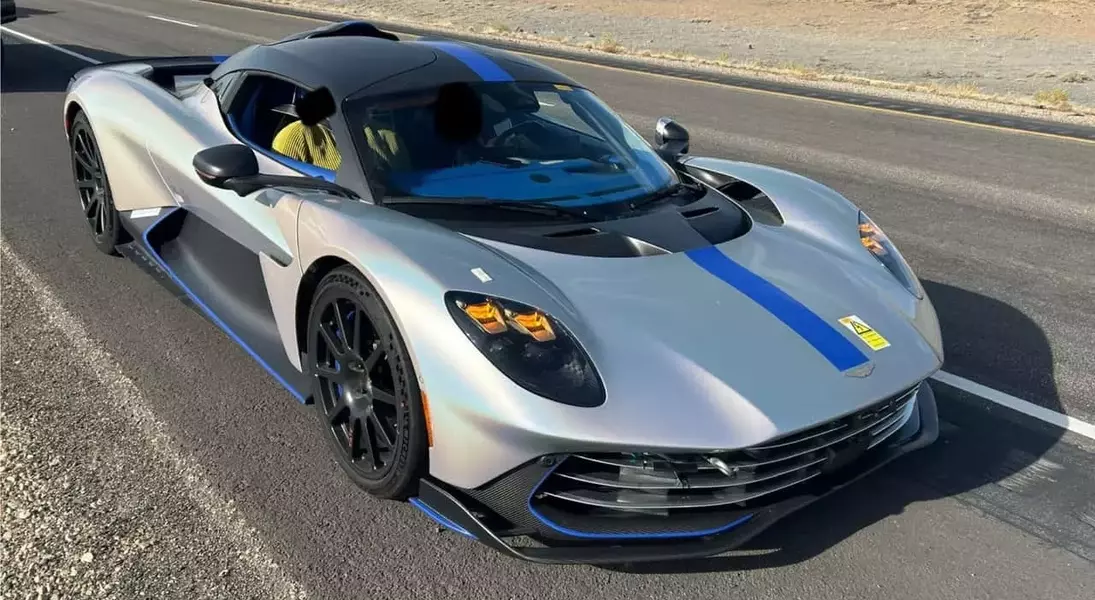
An Aston Martin Valhalla prototype recently garnered an unexpected spotlight when its development driver was issued a citation for reckless driving in Utah. This incident underscores the powerful capabilities of the highly anticipated hybrid hypercar, a machine co-developed with Red Bull Racing, which commands a price tag of $1.5 million and boasts over 1,000 horsepower.
The event unfolded on a stretch of Interstate 70 near Green River, Utah, where local authorities, including an Emery County Sheriff's Office Deputy and a Utah Highway Patrol Trooper, intercepted the high-performance vehicle. The remote, expansive roads of Utah often serve as a testing ground for automobile manufacturers, allowing them to push vehicles to their limits. However, the appearance of such an exclusive and powerful prototype, allegedly driven recklessly, was clearly an anomaly for the local law enforcement.
Aston Martin has been meticulously developing the Valhalla for a considerable period, and this incident suggests the testing phase is still actively underway. It is plausible that the prototype was being evaluated for its performance characteristics, or perhaps even showcased to a prospective buyer, given the limited number of development models available. The British automaker intends to produce only 999 units of the Valhalla, making each test drive a premium experience, even in its pre-production form.
The Valhalla represents Aston Martin's inaugural venture into plug-in hybrid technology. Its advanced powertrain integrates a twin-turbocharged V-8 engine with three electric motors: two positioned at the front and a third seamlessly integrated into the eight-speed dual-clutch gearbox. This innovative setup even negates the need for a traditional reverse gear, as the front electric motors capably handle backward movement.
With a combined output of 1,064 horsepower and 811 lb-ft of torque, the Valhalla is engineered for blistering speed. Aston Martin projects an acceleration time of 0 to 62 mph in a mere 2.5 seconds, a figure that could potentially be surpassed once the vehicle transitions into full production. Drivers of this elite machine should, however, be mindful of local traffic regulations, as even an advanced hybrid mode, offering an estimated 8.5 miles of electric-only range, may not deter law enforcement from addressing excessive speed.
